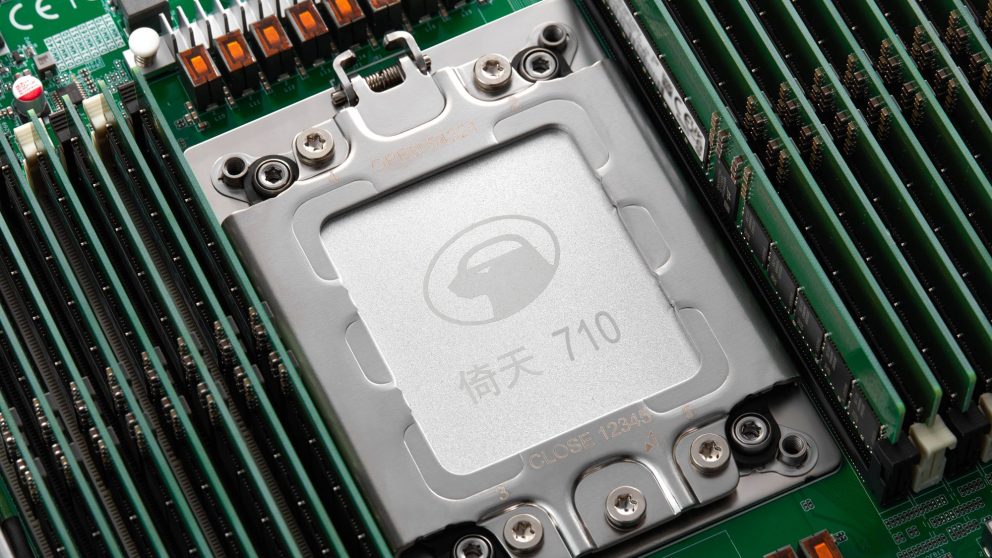


Alibaba plans to use its new chips to across its ecosystem. Photo credit: Alibaba Cloud
Alibaba Group unveiled on Tuesday a new processor chip built on advanced 5-nanometer technology and designed in-house to improve the performance and energy efficiency of its data centers.
The server chips will not be available commercially but are running in proprietary, cloud-native servers recently launched by Alibaba’s cloud computing business unit.
“We plan to use the custom-built chips to support current and future businesses across the Alibaba Group ecosystem,” Jeff Zhang, President of Alibaba Cloud and Head of Alibaba DAMO Academy, said in a statement released during Alibaba’s annual Apsara Conference in Hangzhou.
“We will also offer our clients next-generation computing services with the new chip-powered servers through Alibaba Cloud in the near future,” added Zhang.
Alibaba is seeking to make computing power more accessible for large and small businesses alike, expanding the potential applications of artificial intelligence and autonomous driving.



Power of Cloud Processing
The server chips, dubbed Yitian 710, is based on architecture by SoftBank Group’s ARM Ltd. that clocks a speed of 3.2 gigahertz. The Yitan 710 were developed by Alibaba’s chip development branch T-Head.
A single Yitian 710 chip has a whopping 60 billion transistors, each one running complex calculations using binary code. The new chip has notched up a 20% higher performance rate and 50% greater energy efficiency compared with other server processors on the market.
While these features are impressive in their own right, Alibaba Cloud services will be further elevated by pairing the new chip with a cloud-oriented server.
Alibaba’s proprietary Panjiu servers separate computing from storage to better support cloud-native infrastructure, such as the software behind computer applications that do not use physical servers. This allows servers to be more specialized in AI computing, making large-scale data more cost-effective to deploy.
We plan to use the custom-built chips to support current and future businesses across the Alibaba Group ecosystem
Community of Developers
As Alibaba Cloud adopts the Yitian 710 chip, the source code for Alibaba’s XuanTie 910 chip will be made freely available to developers around the world alongside code for XuanTie-related software and development tools. The XuanTie core series is based on RISC-V architecture.
The move creates more opportunities for developers worldwide to customize code for devices on private internet connections in communication with each other, a global network known as the Internet of Things.
“By opening up the IP cores of our in-house IoT processors as well as related software stacks and development tools, we hope to assist global developers in building their own RISC-V-based chips in a much more cost-effective way,” said Zhang.
Alibaba is one of the first companies to embrace chips developed with RISC-V architecture, a chip design using open-source code that can be accessed without expensive licensing fees.
“We hope our move can encourage more innovation in the thriving RISC-V software community, and as a result, people can enjoy the benefits of a connected world in the digital era,” Zhang added.
To receive the latest news directly in your inbox, sign up for the weekly Alizila newsletter





